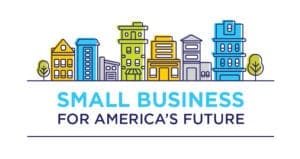Fortune
April 23, 2021
BY MARCO QUIROZ-GUTIERREZ
Large corporations have largely come out against President Biden’s $2.7 trillion American Jobs Plan, but for small businesses, whether to support the bill or not is a more complicated question.
The proposed infrastructure improvement plan, which includes raising the corporate tax rate to 28% from 21%, has prompted a negative response from groups such as the Business Roundtable who say a corporate tax increase will hinder U.S. companies’ business and decrease their competitiveness globally.
But small businesses see an upside. Frank Knapp, Jr., co-chair of Small Business for America’s Future, said it’s about time large corporations paid their fair share of taxes.
“It wasn’t fair that small businesses only got a temporary deduction of their taxes, and the corporate tax rate was a permanent reduction,” Knapp said in an interview, referring to former President Trump’s Tax Cuts and Jobs Act of 2017.
Trump’s tax plan permanently cut the corporate tax rate to a single 21% rate from the original rate of 35% while allowing small businesses to deduct 20% of their qualified business income until 2025.
Some small business owners like Steve Brown, president of Houston-based Capital Assets Sustainable Energy Development & Public Affairs, said he supports the bill because of its emphasis on investing in clean energy and retrofitting for buildings, which would benefit his business.
Brown said he thinks Biden’s plan would accelerate the transition to sustainable energy across the country, which would not only be good for his business but for the environment.
He told Fortune: “At the very least it would raise awareness for the need for these types of energy retrofits and knowing that this green energy transition is taking place.”
Frank and Kimberlee Spillers, a married couple and co-owners of rural development consulting company Rural Community Solutions, said they support Biden’s plan because it will bring broadband access to small communities.
Their company, based in Atlantic, Iowa — a rural city in the southwest part of the state — specializes in helping sparsely populated counties attract entrepreneurs. Frank Spillers said better broadband infrastructure would help them attract more small business owners to rural communities from larger cities.
“We’re working with the smallest of the small and trying to build their economy because they should be given the same benefits as somebody that’s living in downtown Omaha or downtown Des Moines,” said Frank Spillers.
The main issue large corporations have with the Biden plan is the corporate tax increase and the targeting of foreign profits.
The Business Roundtable said in a survey last week that 98% of the 178 CEOs it questioned said the corporate tax rate hike would have a “moderately” or “very” significant adverse effect on their company’s competitiveness.
Some small business owners agree that more taxes for corporations could actually harm small business. Marcelle Folk, owner of Washington D.C. catering business Wine Key Experience, said she expected her profits to more than double in 2020 until the pandemic hit.
Now, Folk said she has been relying on food banks and donations to feed she and her daughter while she struggles to pay the operating expenses for her business.
Before the pandemic, many of her clients were corporations and she said if the corporate tax rate increases, that business may not come back.
“Even bigger businesses have budgets too,” Folk said. “If they have cuts it’s likely going to be the holiday party or wine tasting that they organize through a small business.”
https://fortune.com/2021/04/23/biden-tax-plan-hikes-small-businesses-pros-cons/


